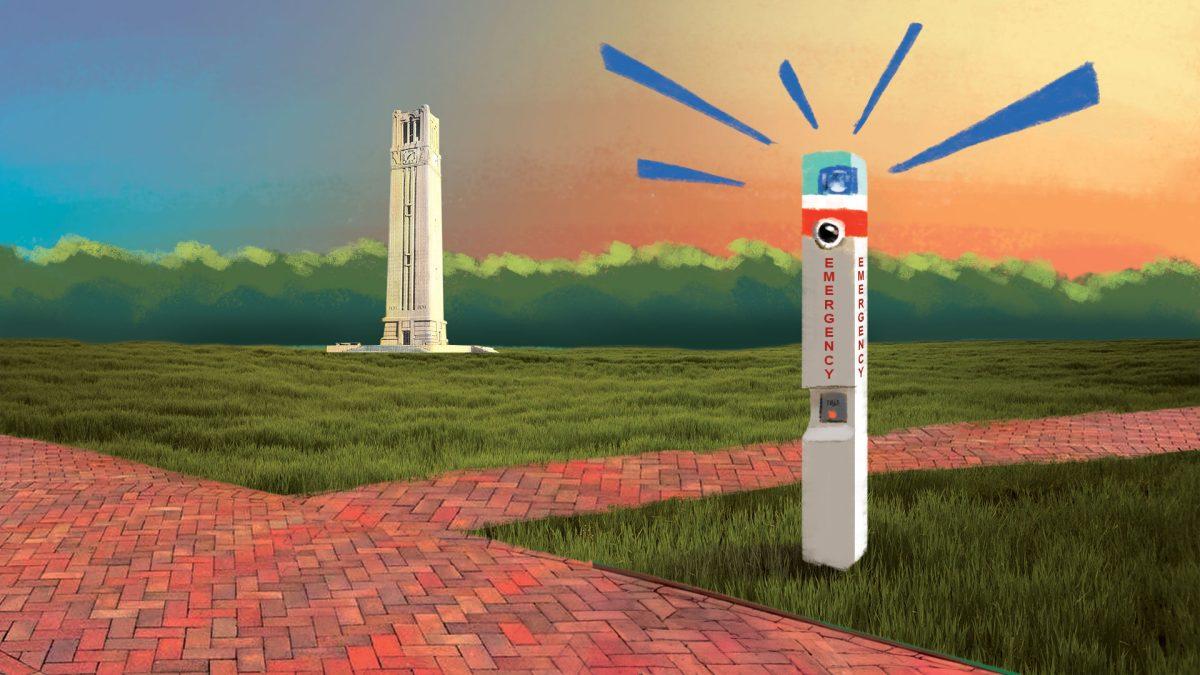Editor’s Note: This article contains reference to substance use.
Students and alumni from NC State’s anthropology program are working to reduce drug-related harm through research and awareness for those impacted. The program’s efforts support harm reduction strategies, which aim to curb overdose rates through services like drug checking and the distribution of life-saving supplies.
The NC Harm Reduction Coalition implements these services along with other programs for harm reduction interventions, public health strategies, drug policy transformation and criminal justice reform.
Michayla Gastos, a graduate student studying anthropology, said her research was inspired by volunteering with the NC Harm Reduction Coalition.
“We work a lot with people with substance use disorders, and through them, I got the idea to look at the Drug Treatment Court,” Gastos said.
Drug Treatment Court offers individuals the option to enter long-term drug treatment under court supervision rather than receiving a jail sentence.
Gastos’ research aims to amplify the voices of participants in the program. Her methods center around an ethnographic approach, which means immersing herself in the proceedings of the Wake County Drug Court to better understand how it affects the people within its programs.
“There’s not a lot of studies that focus on the people who use drugs’ perspective,” Gastos said. “I want to interview participants and get their say on what the program is doing for them.”
Gastos has been observing Wake County’s Drug Treatment Court since January. Her research involves combining data from both court observations and interviews.
Gastos interviews court staff and wants to interview participants to better understand the system.
“I’m diving deeper into each staff member’s insights into the program,” Gastos said. “There are many positions and they all do different things within the courtroom.”
Many studies surrounding research on Drug Treatment Courts are quantitative, meaning they rely heavily on numbers and statistical analysis. Gastos hopes her research will extend beyond that, contributing data centered around detailed descriptions rather than just numerical quantities.
“It’s going to be great to have a specific example of the court that I’m researching to add to the growing body of research about Drug Treatment Courts,” Gastos said.
But above all else, Gastos is focused on how her research can positively impact the community.
“In anthropology, an important aspect of research is to uplift the community members’ voices and ensure they’re the ones benefiting from the information,” Gastos said.
Dmitri Fisher, a graduate student at UNC Gillings School of Public Health, also seeks to uphold this principle within his studies and research.
Fisher completed his undergraduate degree in anthropology from NC State. While at NC State, he helped Jennifer Carroll, an anthropology professor, research Death by Distribution laws in Haywood County, N.C.
“If someone dies from an overdose, the person who sold, or even just provided, the drug can be charged with a felony,” Fisher said. “The study sought to look at the perspectives of impacted people in the community.”
Carroll facilitated discussions with groups of parents who had lost a child due to an overdose. Fisher helped her transcribe and interpret findings from their conversations.
“We got a sense of their understanding of both Death by Distribution laws and also the culture and environment surrounding opioid use and overdose,” Fisher said.
The study, published in 2021 in the International Journal of Drug Policy, emphasized these laws negatively impact public health by deterring people from calling 911 when witnessing an overdose. It also calls out the overall lack of studies surrounding these laws, citing that with prosecutions growing, more research is desperately needed.
As a graduate student, Fisher has continued his studies in harm reduction and actively volunteers with the NC Harm Reduction Coalition.
“It’s rewarding to have so many opportunities in research and also being able to participate in the groundwork that actively benefits the community,” Fisher said. “It’s the best of both worlds.”
Moving forward, Fisher says he hopes to continue using his role as a scholar and harm reductionist to reduce stigma and bring attention to research that is often overlooked.
“I want to communicate the facts of substance use disorder and overdose with people who are inclined to stigmatize people who use drugs,” Fisher said. “I believe in using research to bridge that gap.”













